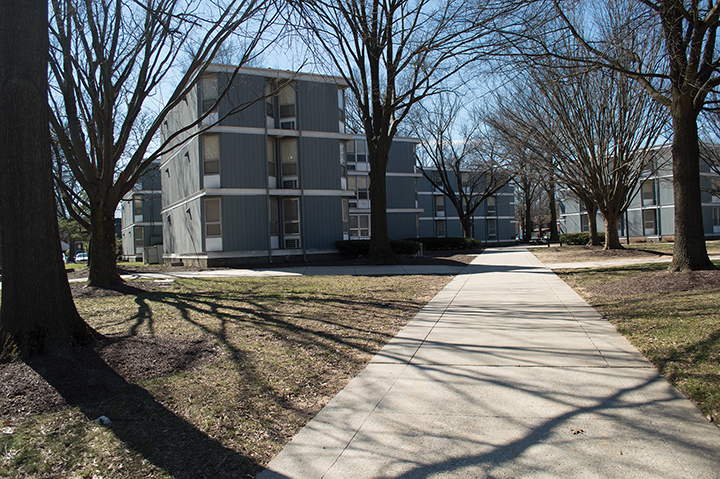Views expressed in opinion columns are the author’s own.
Recently, a University of Maryland official said this university “is not a home”: It’s not meant to be a place of emotional and ideological comfort for students, and that’s why it won’t transgress the First Amendment to ban hate speech here. However, many students live in College Park’s houses, dorms and apartments, and many landlords — including this university — profit massively by charging students jacked-up rent for dilapidated domiciles. This university’s administration may be unwilling to change its social culture, but its tenants have a right to better physical living conditions.
The biggest obstacle to more livable residences is landlord accountability. When a student moves into a dorm, they’re put into a passive role. They can be corralled into a 50-year-old building with no AC and leaky pipes, and there are no real ways to improve those living conditions except moving out or waiting for this university to decide it’s time for maintenance. Often, you’re told to direct your concerns to students working help desks when these issues are beyond their scope.
There’s a communication breakdown embedded in this system, to the point where we’ve normalized it as the typical dorm experience. But beyond causing inconvenience and discomfort, poorly maintained properties can easily become health risks.
Last year, I lived in Hagerstown Hall, where the pipes overflowed several times. On one occasion, an elevator was flooded with sewage, and it was up to other people who knew what’d happened to warn their friends before they entered that coffin of contagion. After that, the front desk put up a sign in the lobby. We never got any notification the university was aware of the issue or what it was doing about it; the elevator was usable again within a week, but how could we ever feel clean riding it? Who knows if it was properly sanitized? We imagined we saw streaks of waste fluid every time we were in it.
Fixing campus infrastructure may be a work in progress, but that doesn’t justify how gross it is now. If people are living in a building, their safety and health concerns need to be addressed while they’re there, because that’s the duty of a landlord.
[Read more: UMD Facilities Management might replace water heaters after outages in several dorms]
Instead, students get one-way emails about enduring the conditions. Leonardtown residents received one today cautioning them that sinking temperatures may put stress on their pipes and cause flooding. Residents were told to turn all their heaters on blast, and that maintenance staff will be by to make sure it’s done.
Though this is a preventative measure and an important communication, things shouldn’t be like this. Leonardtown tenants, who pay the same exorbitant rent as any student living in an on-campus apartment for older and worse facilities, shouldn’t be told to change their behavior to deal with potentially dangerous conditions. Leonardtown and several older dorms are slated to be demolished in the coming years, so this university probably won’t commit to improving their infrastructure. Still, if it’s going to keep letting people live in these places, doesn’t it have an obligation to keep them habitable?
Students aren’t empowered to report these issues and see a commitment to action. The university decides what is dealt with and when, and it’s very often not as responsive as we need it to be. That’s why it’s not surprising when we regularly see dorms struggling through hot water outages and leaky pipes, though they’re the markings of a neglectful landlord.
People shouldn’t have to give up their comfort and safety to live on this campus, and they should be able to hold the university accountable for these conditions. Students should be active participants in the landlord-tenant power dynamic, not left to deal with deteriorating conditions in the hope they’ll one day be permanently fixed. There’s no reason this university should be a worse home than any other community, but here it is.
Sona Chaudhary, opinion editor, is a sophomore English and geology major. She can be reached at sonachaud@gmail.com.



